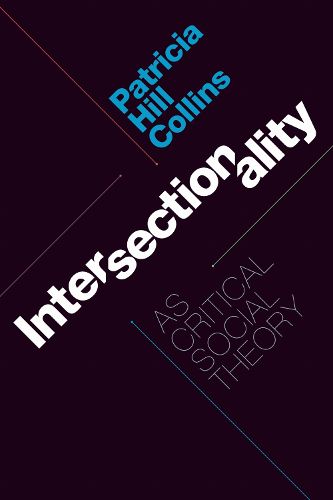Readings Newsletter
Become a Readings Member to make your shopping experience even easier.
Sign in or sign up for free!
You’re not far away from qualifying for FREE standard shipping within Australia
You’ve qualified for FREE standard shipping within Australia
The cart is loading…






In Intersectionality as Critical Social Theory Patricia Hill Collins offers a set of analytical tools for those wishing to develop intersectionality’s capability to theorize social inequality in ways that would facilitate social change. While intersectionality helps shed light on contemporary social issues, Collins notes that it has yet to reach its full potential as a critical social theory. She contends that for intersectionality to fully realize its power, its practitioners must critically reflect on its assumptions, epistemologies, and methods. She places intersectionality in dialog with several theoretical traditions-from the Frankfurt school to black feminist thought-to sharpen its definition and foreground its singular critical purchase, thereby providing a capacious interrogation into intersectionality’s potential to reshape the world.
$9.00 standard shipping within Australia
FREE standard shipping within Australia for orders over $100.00
Express & International shipping calculated at checkout
Stock availability can be subject to change without notice. We recommend calling the shop or contacting our online team to check availability of low stock items. Please see our Shopping Online page for more details.
In Intersectionality as Critical Social Theory Patricia Hill Collins offers a set of analytical tools for those wishing to develop intersectionality’s capability to theorize social inequality in ways that would facilitate social change. While intersectionality helps shed light on contemporary social issues, Collins notes that it has yet to reach its full potential as a critical social theory. She contends that for intersectionality to fully realize its power, its practitioners must critically reflect on its assumptions, epistemologies, and methods. She places intersectionality in dialog with several theoretical traditions-from the Frankfurt school to black feminist thought-to sharpen its definition and foreground its singular critical purchase, thereby providing a capacious interrogation into intersectionality’s potential to reshape the world.